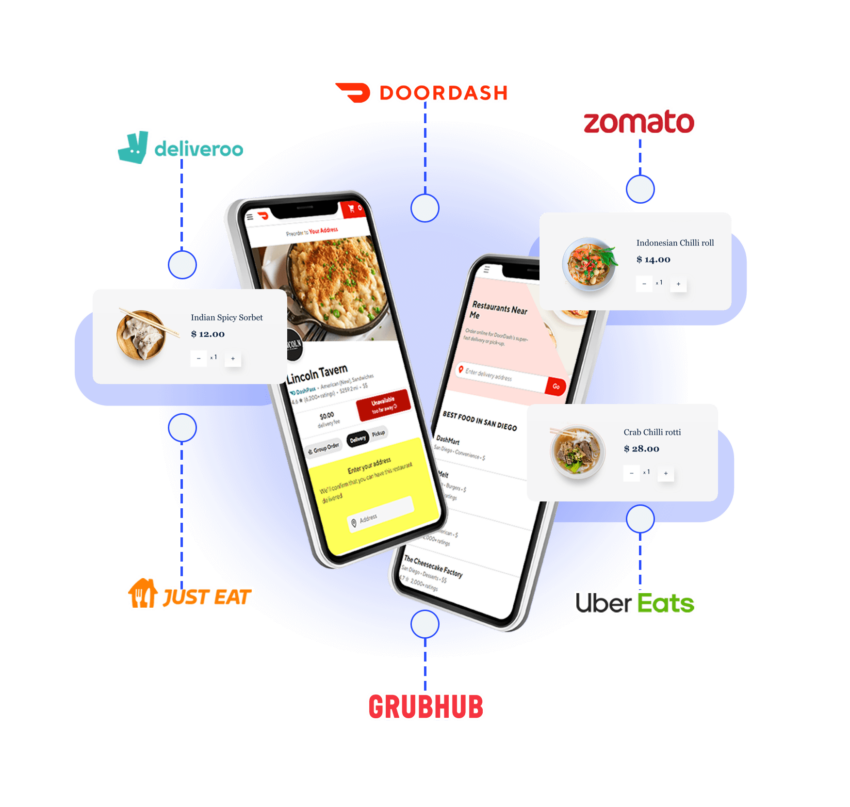In today’s fast-paced digital age, data is a key ingredient for success in almost any industry. When it comes to the food industry, the demand for data is as insatiable as a gourmet’s craving for the perfect meal. Food data scraping services have emerged as a critical tool for businesses, researchers, and food enthusiasts seeking to explore the vast world of culinary information. In this blog post, we’ll take a deep dive into the realm of food data scraping services, exploring their significance, applications, and the ethical considerations that come with them.
What Are Food Data Scraping Services?
Food data scraping services involve the automated extraction of information related to food products, recipes, nutritional facts, restaurant menus, reviews, and more from various websites and online platforms. These services utilize web scraping techniques to collect, organize, and provide access to vast amounts of culinary data.
Why Opt for Food Data Scraping Services?
-
Market Analysis: For businesses in the food industry, access to data on competitors, pricing, and market trends is invaluable. Scraped data can offer insights into consumer preferences, allowing for informed decision-making and strategic planning.
-
Recipe Creation and Innovation: Food bloggers, chefs, and culinary enthusiasts can use scraped data to discover new recipes, ingredient combinations, and cooking techniques, fostering creativity in the kitchen.
-
Nutritional Information: Health-conscious individuals can access nutritional data from various sources to make informed dietary choices, track calorie intake, and manage their health effectively.
-
Menu Optimization: Restaurants can monitor competitors’ menus, gather customer reviews, and adjust their offerings to stay competitive and meet customer expectations.
-
Price Comparison: Consumers can use scraped data to compare food prices at different grocery stores or restaurants, ensuring they get the best value for their money.
How Do Food Data Scraping Services Work?
Food data scraping services follow a series of steps:
-
Website Selection: Identify the websites or online platforms that contain the desired food-related data, such as recipe websites, restaurant review sites, or grocery store websites.
-
Web Scraping Tools: Employ web scraping tools or libraries like BeautifulSoup, Scrapy, or Selenium to automate the data extraction process. These tools enable the service to navigate websites, extract data, and organize it efficiently.
-
Data Cleaning and Structuring: Raw scraped data often requires cleaning and structuring to remove inconsistencies and format it for easy analysis. This step ensures that the data is reliable and ready for use.
-
Storage: The scraped data is typically stored in a database or structured file format like CSV or JSON, making it easily accessible for analysis and retrieval.
-
Continuous Updates: To maintain data accuracy, food data scraping services often implement scheduled scraping routines to keep the information up-to-date.
Ethical Considerations
While food data scraping services offer immense benefits, it’s essential to conduct these activities ethically:
-
Respect Website Terms: Ensure that your scraping activities comply with the terms of service of the websites you are scraping. Some websites explicitly prohibit scraping, while others may have specific rules.
-
Rate Limiting: Implement rate limiting to avoid overloading the servers of the websites you are scraping. Excessive requests can disrupt their operations and lead to ethical and legal concerns.
-
Data Privacy: Be mindful of data privacy regulations, especially if you are scraping user-generated content or personal information. Anonymize and protect data when necessary.
-
Transparency: If you are using scraped data for public-facing purposes, be transparent about the source of the data and ensure it is used responsibly.
Conclusion
Food data scraping services have become indispensable tools in the food industry, offering valuable insights, facilitating culinary creativity, and supporting data-driven decision-making. Whether you’re a food business aiming to gain a competitive edge or an individual seeking culinary inspiration, these services provide a rich buffet of information to satisfy your appetite for data. However, ethical considerations must always guide the scraping process, ensuring that this valuable resource is harvested responsibly and sustainably. As the world of food continues to evolve, food data scraping services will undoubtedly play a significant role in shaping its future.


